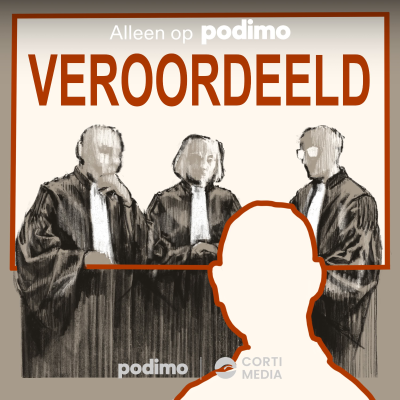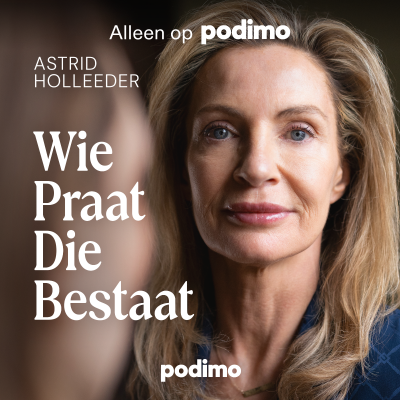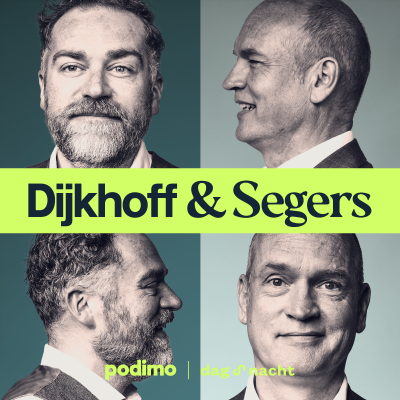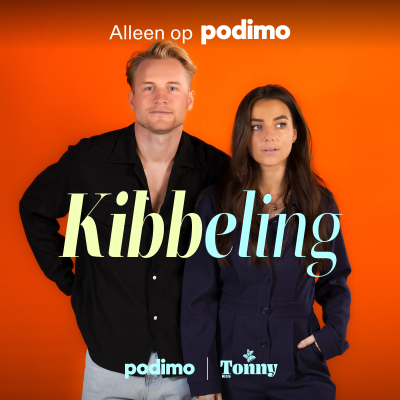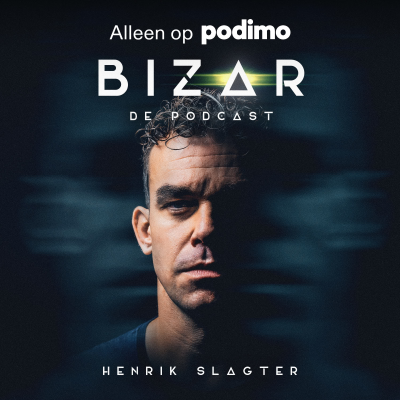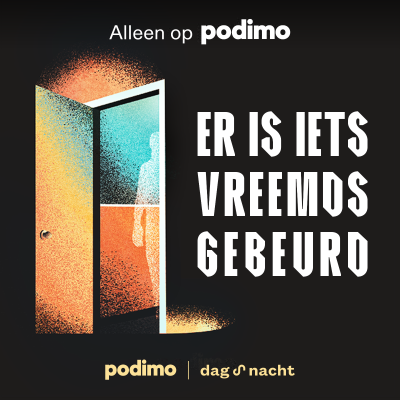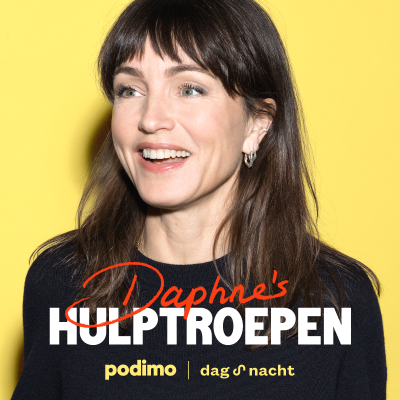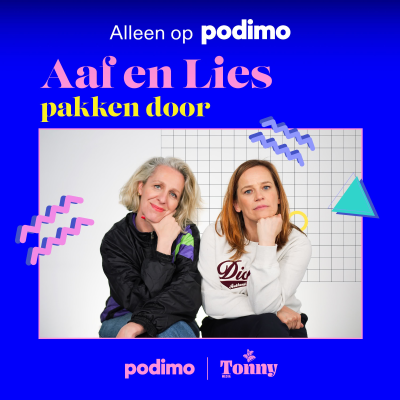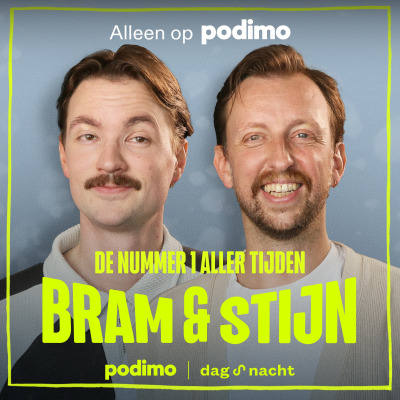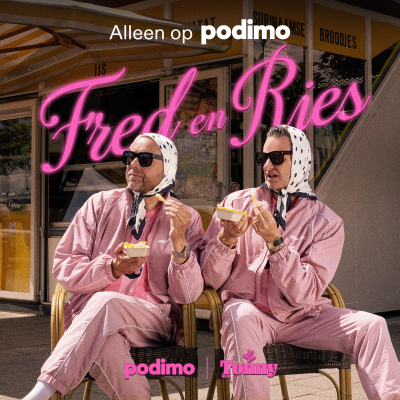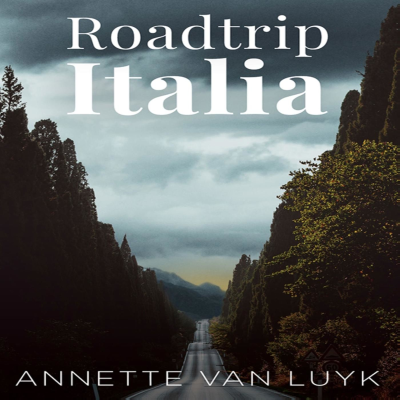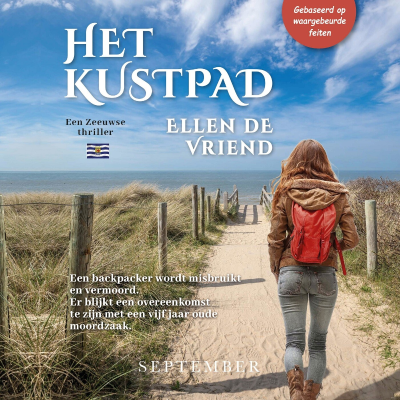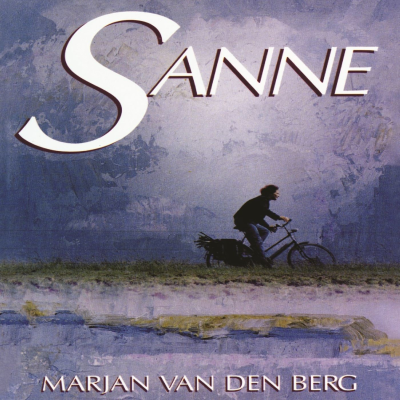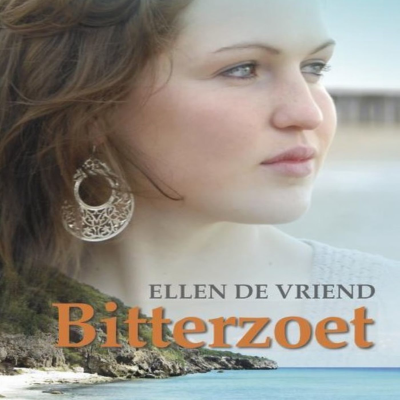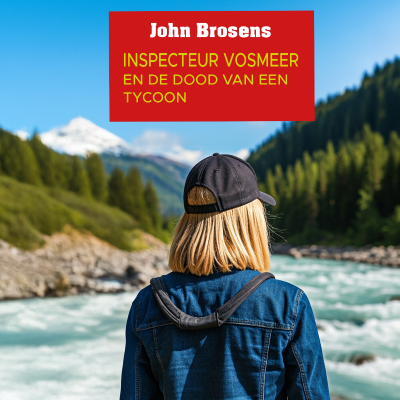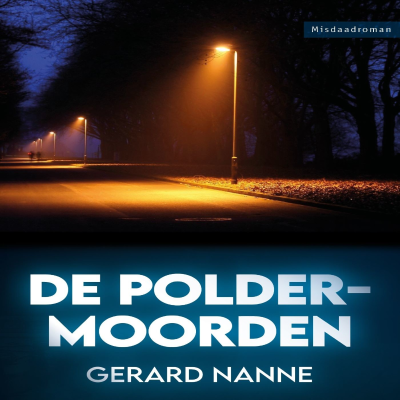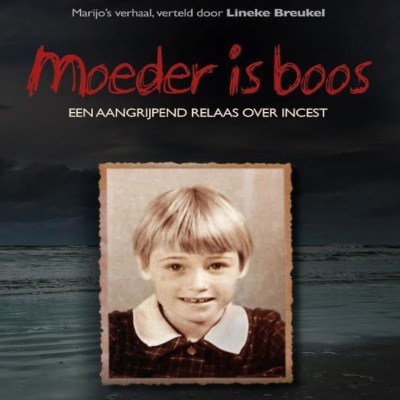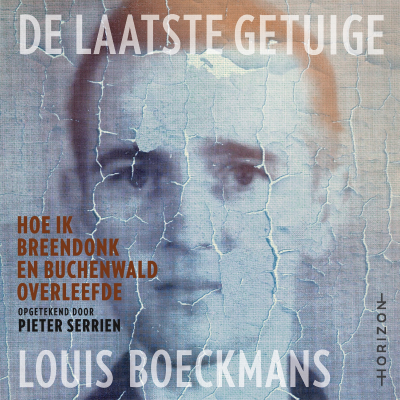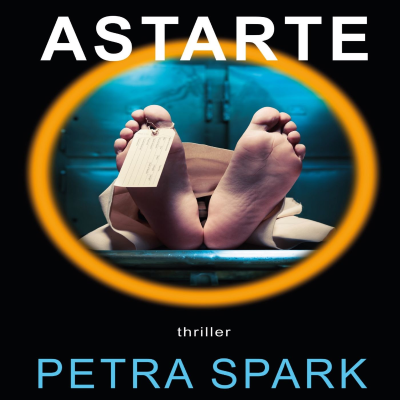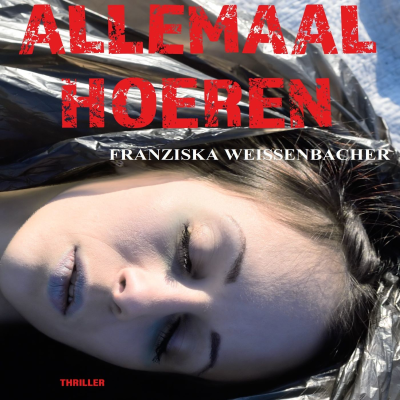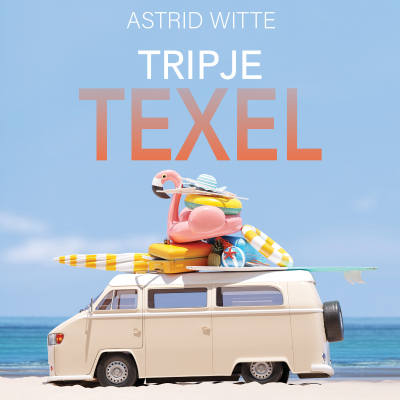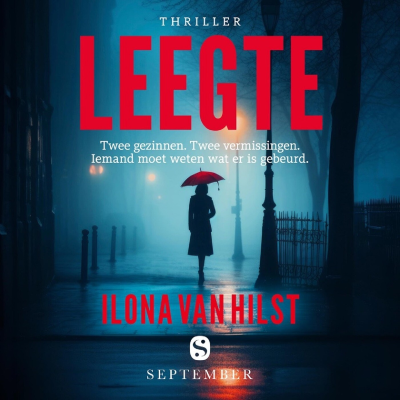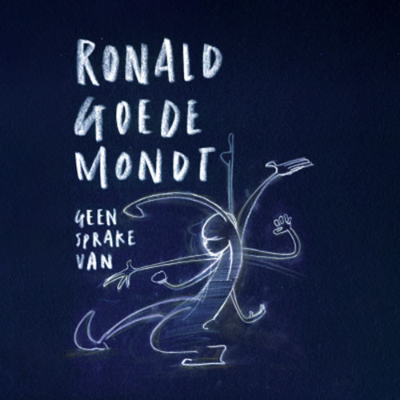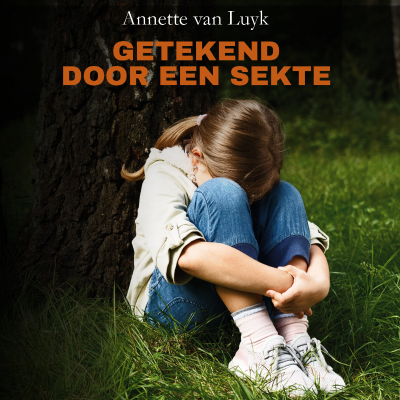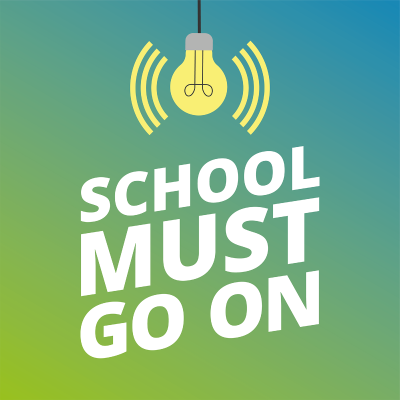
School must go on
Duits
Technologie en Wetenschap
Tijdelijke aanbieding
2 maanden voor € 1
Daarna € 9,99 / maandElk moment opzegbaar.
- 20 uur luisterboeken / maand
- Podcasts die je alleen op Podimo hoort
- Gratis podcasts
Over School must go on
Der Podcast „School must go on“ entstand während der Schulschließungen im Frühjahr 2020. Für Bildungsunternehmer Stephan Bayer (sofatutor.com) und Podcaster Philipp Glöckler war klar, dass das Lernen immer weitergeht – auch wenn es zunächst unvorstellbar schien. Mit spannenden Denkanstößen und gelungenen Praxisbeispielen macht Stephan Bayer den Schulen Mut, sich nachhaltig und sinnstiftend weiterzuentwickeln. Er tauscht sich dazu jede Woche mit Lehrkräften, Bildungsexpert*innen und Familien über Themen wie Krisenmanagement, digitale Bildung oder neue Lernkonzepte aus. Seine Gäste zeigen, dass neue Bildung unkompliziert gelingen kann, wenn man mit Herz und Verstand zur Tat schreitet. Für Ideen & Anmerkungen: podcast@sofatutor.com Für mehr Infos: LinkedIn: https://www.linkedin.com/in/bayerstephan/ Twitter: https://twitter.com/stephan_bayer_ Web: https://www.sofatutor.com/
Alle afleveringen
48 afleveringenEdTech wissenschaftlich untersucht– Prof. Dr. Klaus Hurrelmann zur Wirksamkeit von sofatutor
Ein Gespräch über bildungspolitische Herausforderungen, wissenschaftliche Erkenntnisse und die Rolle digitaler Bildungsangebote Was muss Schule heute leisten – und wo stößt sie an ihre Grenzen? Welche Rolle spielen Eltern, wenn es um Lernmotivation geht? Und wie erleben Lehrer*innen den Spagat zwischen pädagogischem Anspruch und systemischen Schranken? In dieser Folge von School must go on spricht Stephan Bayer mit dem Jugend- und Bildungsforscher Prof. Dr. Klaus Hurrelmann über die großen bildungspolitischen Fragen unserer Zeit: darüber, was Schule heutzutage leisten muss, über die sich verändernden Ansprüche an Schüler*innen, Lehrkräfte und Eltern und über die Frage, wie sich Bildungseinrichtungen öffnen und weiterentwickeln können – auch im Zusammenspiel mit außerschulischen Partnern wie EdTechs. Ausgangspunkt für das Gespräch ist eine aktuelle Wirksamkeitsstudie zur Nutzung von sofatutor, die vom Forschungsinstitut für Bildungs- und Sozialökonomie (FIBS) gemeinsam mit Trimion applied social research im Auftrag von sofatutor durchgeführt wurde. Befragt wurden über 6.600 Personen – darunter Lehrkräfte, Schüler*innen und Eltern. Die Ergebnisse zeigen: Digitale Lernplattformen können einen Beitrag leisten – zur Stärkung der Lernmotivation von Schüler*innen oder der Unterstützung von Lehrkräften beim Unterrichten. Eine Studie dieser Art ist auf dem deutschen EdTech-Markt einzigartig und gibt spannende Einblicke in den Nutzen von digitalen Lern- und Lehrangeboten.
Die Welt als Klassenzimmer – Familie Gencalp segelt um die Welt
"Man lernt nach seinen eigenen Regeln und kriegt nicht das meiste vorgeschrieben." Familie Gencalp hat ihr Leben letztes Jahr komplett auf den Kopf gestellt und sich auf den Weg gemacht, die Welt zu umsegeln. Im Podcast „School must go on“ berichtet die dreiköpfige Familie über die Hintergründe ihrer Entscheidung und wie Sohn Aybars das Lernen außerhalb des Klassenzimmers gelingt. – „Was machen wir hier eigentlich?“ – Den Traum vom Leben auf dem Boot und dem Umsegeln der Welt hatten Mama Daniele und Papa Güven schon lange. Nach einem schweren Schicksalsschlag entschieden sie sich schließlich, ihr Leben grundlegend zu verändern und ihren Traum Wirklichkeit werden zu lassen. „Das war auch für uns der Auslöser, wo wir gesagt haben: ‘Was machen wir eigentlich?’“, erklärt Daniele. „Man verschiebt immer alles auf später und wartet, aber das Leben kann von heute auf morgen vorbei sein!“. So verkauften die beiden Haus und Firma und zogen gemeinsam mit Sohn Aybars auf ihr Boot, mit dem im Mai die Weltreise starten soll. – „Der Schulleiter ist der Meinung, dass Reisen auch bildet” – Der 15-Jährige Aybars hat seine bisherige Schulzeit, wie die meisten Jugendlichen seines Alters, in einer deutschen Schule verbracht. Die Freistellung von der Schulpflicht sei jedoch einfach und unkompliziert gewesen. „Wir haben dem Schulleiter von unseren Plänen erzählt und er hat es von Anfang an befürwortet“, erinnert sich Daniele. „Er ist ebenso der Meinung, dass Reisen auch bildet.“ So wurde der Antrag bei der Schulbehörde gestellt und knapp eine Woche später kam die Bestätigung der Freistellung von der Schulpflicht für drei Jahre. – Neu gewonnene Freiheiten beim Lernen – „Am Anfang hatte ich ein bisschen Angst davor, dass ich meine Freunde nicht mehr sehe und das mit der Schule nicht schaffe“, erklärt Aybars. Beides habe sich aber nicht bewahrheitet. Gelegentliche gegenseitige Besuche und der Kontakt über das Internet ermöglichen es dem 15-jährigen, sich mit seinen Freunden auszutauschen. Das Lernen sei inzwischen einfach. „Ich habe die entsprechenden Schulbücher der 9. Klasse und lerne parallel mit den Videos und Aufgaben von sofatutor“, so der Jugendliche. „Es ist angenehmer, man lernt nach seinen eigenen Regeln und kriegt nicht das meiste vorgeschrieben, wie zum Beispiel wann der Unterricht startet oder wann die Schule endet.“ Es ist diese gewonnene Freiheit für ihren Sohn, über die sich auch Mutter Daniele freut. „Manchmal ist es so, dass das Wetter toll ist und der Wind stimmt. Dann geht Aybars morgens Kitesurfen und macht am Nachmittag Schule oder am nächsten Tag entsprechend ein bisschen mehr. Das ist diese Freiheit, die er dann eben auch genießen kann, aber man trotzdem das Gefühl hat, dass er die Schule ernst nimmt.“ Außerdem berichtet die Familie von Dingen, die man über den Lehrplan hinaus beim Reisen lernt, wie das Fehlen der sozialen Aspekte einer Schule auf Reisen kompensiert werden kann und welche Route sie segeln werden.
“There is no huge support from the governments” – about Optima School with Yuriy Balkin
"The German Foundations helped us to support the Ukrainian students in the hard times." (The English interview starts at 3:10) According to current statistics, each German high school has enrolled between 10 and 30 Ukrainian students. Many principals have done this without additional staff and have often exceeded the maximum class sizes allowed by law. This raises the question of how well or poorly Ukrainian students are able to follow the lessons when they speak little German and are forced by German school law to be present in the German school. At the beginning of the war and the wave of refugees, Optima School tried to offer supplementary lessons for Ukrainian students. With live lessons and on-demand learning content in Ukrainian. In the morning, Ukrainian children could have learned at the German school and in the afternoon, they could have consolidated content in their own language or learned Ukraine-specific topics such as history, geography and social studies. Unfortunately, there was no longer much talk about the Optima School in Germany, which Stephan took as the occasion to talk to Yuriy Balkin. Yuriy is Chief Strategy Officer of Optima Education Group which operates Optima School, the first and the largest Ukrainian K-12 distance learning school. – No state funding in Germany – As Yuriy explains in this episode of “School must go on” Optima has been running reliably for years and is easily scalable. Optima School is in the same situation as many EdTechs in the education sector: There is no state funding, because stakeholders such as the ministry of education do not want to support "for-profit" companies, even in times of acute crisis. This is also how the documentation of the rejection of cooperation between KMK and Optima can be read: No interest in cooperating with companies with the excuse that it is not that easy to procure. Instead, the SAP Foundation and the Bosch Foundation stepped in and helped more than 100,000 Ukrainian students gain access to the Optima platform at short notice. Yuri Balkin also talks about the background and concept of Optima School and how they are currently trying to continue to provide education to as many Ukrainian children as possible, regardless of location, economic circumstances, and government support.
Bridging a gap in the conversation around innovation – about the US education system with Doug Roberts
"The relationships are much more important than the business" Doug Robers, who started out as a teacher, has worked in and with the US education system in a wide variety of roles over the years. Based on his accumulated experiences, he founded the Institute for Education Innovation in 2018, which he still manages as CEO. In the podcast “School must go on,” Doug Roberts talks about the unique structures in the US education system, and the background and work of the Institute for Education Innovation. – “We aim to bridge a gap in the conversations around innovation” – Doug Roberts talks about two different groups: On the one hand the district leaders who are working hard to try to find the most creative and innovative solution to problems, and on the other hand, entrepreneurs and founders of organizations who are similarly working to provide creative and innovative solutions to challenges. “It can be hard for them to find each other, partially because our process of buying and selling in K12 is somewhat antiquated”, Doug explains. “So what if we create a robust and sort of level playing field, democratized ecosystem where any company or nonprofit or other organization, regardless of its size, experience, influence, investor backing or not, can have access to districts that are trying to solve the problem that they're working on.” It’s not necessarily about doing business, Doug says, it’s about learning what’s out there and then figuring out how you can improve what you are currently doing. “Overall it’s a community of people who are curious and engaged in trying to get better at what they do.” – Building relationships instead of only doing business – “You can't come to the Institute for Education Innovation and just think about profit”, Doug explains. “What you want to think about is growing your organization and growing your relationships.” The companies that do best, he says, come in with a focus on listening, on building relationships and on working the problem. “So, if you’re a solution in search of a problem, that’s going to be tough. If you know that there’s a problem and you're looking at the problem and trying to provide a solution to it, our members will see that, identify it and then try to work with you to figure out how you can solve the problem on the ground in their place.” Doug observed that in the end relationships are much more important than the business. “But if you go and build the relationships and listen and take the right approach, the business comes.” – The importance of superintendents – “We do have a unique thing here in the fact that our schools are governed by local boards of education who hire a superintendent who then runs a school system”, Doug says. He thinks the business acumen of these superintendents is not appreciated enough. “They see all the different angles to work in a district. They are running a hundreds-of-millions budget, and managing all the complex operations with thousands of people reporting to them. They have to be over these large bureaucracies, organizations and civil servants and we all kind of know what a school looks like.”, Doug emphasizes. “And it's the entrepreneurial aspect of superintendent work that we try to help people understand that it is a big part of their jobs.” So, the superintendent is the right place to start the conversation, Doug Roberts says, but also the hardest person to reach in the school district because of the massive operations they have to run. “But anything that's kind of enterprise level, you really need the district Leadership team on board, and that's where we help.” Doug Roberts also talks about the procurement and purchasing process, the current state of tech, and past and future development.
“We've given students a voice in their education” – about school in Canada with Brandy Yee
"We need to ensure that our students cannot just regurgitate content." Brandy Yee is the Assistant Professor and Director of Liberal Studies in Education Program at the California Lutheran University. She is from Canada where she worked as a teacher and principal. In addition, she has also worked as a professor in Germany and Finland, which gave her an insight into the educational systems there. In the podcast “School must go on” Brandy Yee talks about the huge shift in the Canadian education system during the last years. – PISA scores vs. intellectual engagement – A study in Canada (“What did you do in school today?”) found out a few years ago that students do not enjoy being students. And this in spite of the consistently good results in PISA. “We need to ensure that our students cannot just regurgitate content. But they have the skills and abilities necessary to engage in lifelong learning to be agile and to be able to pivot when times change”, Brandy Yee explains. She describes intellectual engagement as a deep investment in learning through which the kids come to school because they're so excited about what they're learning. So, the PISA scores are important, Brandy says, but you need to also ask yourself “Are the kids engaged?” Can they not only do well on standardized tests of achievement? Is there an environment where the kids want to be continuous learners? “The Canadian study really forced us to reconsider the things that we were doing.” – A system for every student – In the past, if you weren’t a kid who did very well in the core subjects, Brandy explains, there was really no place for you in the Canadian education system. “It was hard for us to come to terms with that – that we had created structures within our system that only served some of our students well.” For a long time there were students that believed that they could never make it at a university or post secondary setting – so they didn’t even try and apply. “We started to create opportunities within our high schools where they could start to take some of those preliminary University courses”, the Professor says. There are also partnerships with some trades, technical schools and art schools and the students even have the possibility to go to other high schools for specific courses. In addition to this, Canada started to bring mentors from the industry into education. “So we're supporting the students as they transition from high school into post-secondary, and then we're supporting them with those key connections as they transition from post-secondary into the workforce.” – Progress reports instead of classic report cards – “We also started to look at formative assessment”, Brandy Yee sums up. For a long time summative assessment was the main form of assessment used in Canada – and in many other educational systems around the world. “That was something that we just accepted as the acceptable practice. But when you actually start to unpack, it runs quite counterintuitive to teaching and the learning process,” the former principal explains. “So, if we only test students at the end of a unit by a test and it shows that either, they get an 82 or 94 and so they've sort of met the learning outcome, or they get a 60 or a 50 or 40, which means that they maybe haven't quite met the learning outcome. What happens the next day? Will we move on to the next unit?”, Brandy wonders. “We started to shift and integrated three important concepts into the progress report: Student growth, progress, and achievement.” All in all, Brandy Yee says, they have given students a voice in their education. Brandy Yee also talks about the role and self-concept of teachers, how to move from ideas to implementation, and the importance of middle school to adolescents.
Kies je abonnement
Tijdelijke aanbieding
Premium
20 uur aan luisterboeken
Podcasts die je alleen op Podimo hoort
Gratis podcasts
Elk moment opzegbaar
2 maanden voor € 1
Daarna € 9,99 / maand
Premium Plus
Onbeperkt luisterboeken
Podcasts die je alleen op Podimo hoort
Gratis podcasts
Elk moment opzegbaar
Probeer 30 dagen gratis
Daarna € 11,99 / maand
2 maanden voor € 1. Daarna € 9,99 / maand. Elk moment opzegbaar.
